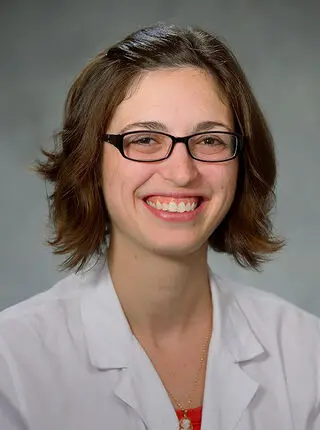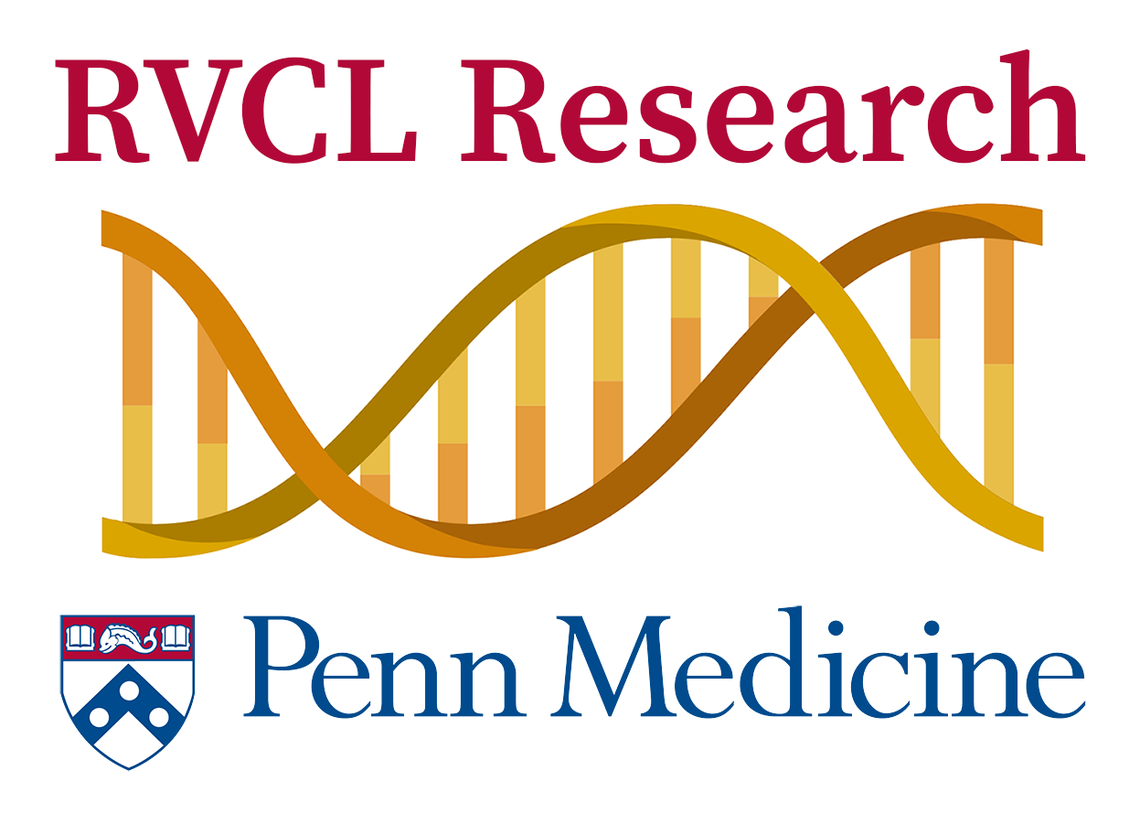Our Team of Expert Clinicians and Researchers
Physicians and Leadership
Jonathan J. Miner, M.D., Ph.D.

Director of the RVCL Research Center, Associate Professor of Medicine
jonathan.miner@pennmedicine.upenn.edu
Penn Medicine - Provider Profile
Dr. Jonathan Miner directs the RVCL Research Center at Penn. Dr. Miner has a unique background with expertise in microvascular biology and immunology, as well as specific expertise related to the cellular pathway regulated by TREX1, the gene that is mutated in patients with RVCL He is Principal Investigator on multiple NIH grants, including 2 grants related to the TREX1 pathway. Dr. Miner has over 70 publications, including papers published in top journals including Cell, Nature, Nature Medicine, Science Translational Medicine, Nature Genetics, and Journal of Experimental Medicine. Dr. Miner designed and established the ongoing clinical trial of crizanlizumab for RVCL, which utilizes an antibody therapy that originated in the laboratory of Dr. Miner's PhD mentor, Dr. Rodger McEver. The Miner laboratory also is engaged in other collaborative efforts to understand RVCL and, most importantly, to develop and test personalized therapies for RVCL.
Amanda Finck, Ph.D.
Director of Translational Research
Dr. Amanda Finck, Ph.D., is the Director of Translational Research for RVCL at the University of Pennsylvania. Dr. Finck earned her doctorate under Dr. Carl June at the Center for Cellular Immunotherapies and has built deep expertise across both academic and industry settings, with research spanning CAR T cell biology, single-cell transcriptomics and proteomics, and bispecific antibody platforms for hematologic malignancies through work at UPenn, Yale, and Janssen Pharmaceuticals. With over a decade of research experience complemented by active involvement in biotech innovation, including roles with Flagship Pioneering, Penn Center for Innovation, Penn Biotech Group, and Interlink Markets, she brings a combination of scientific rigor and translational perspective. Dr. Finck believes that bridging cutting-edge immunology with strategic drug development will be critical to delivering successful treatments for patients with RVCL.
Jennifer L. Orthmann-Murphy, M.D., Ph.D.

Assistant Professor of Neurology, Mahoney Institute for Neurosciences
Penn Medicine - Provider Profile
Dr. Orthmann-Murphy directs a clinic that specializes in undiagnosed white matter disorders at Penn, and she is especially interested in helping to diagnose and treat patients with inherited white matter diseases. She is also part of the Multiple Sclerosis and related Neuroinflammatory disorders division of the Department of Neurology. In addition, Dr. Orthmann-Murphy leads a laboratory studying the role of glial cells in acquired and inherited demyelinating diseases.
Eric A. Kaiser, M.D., Ph.D.
Assistant Professor of Neurology, Penn Headache Program
Dr. Kaiser is an expert in the treatment of migraine headaches, and his studies mechanisms underlying migraine headaches and photophobia. He completed MD at the University of Iowa, his Ph.D. in Molecular Physiology and Biophysics, his residency training at the Hospital of the University of Pennsylvania, and his fellowship training at Brigham and Women's Hospital (Harvard). He currently serves as co-director of Headache Medicine at Penn.
Drew Scoles, M.D., Ph.D.
Assistant Professor of Ophthalmology
Drew H. Scoles, M.D., Ph.D. is a pediatric and adult retina specialist and assistant professor of ophthalmology at the Children’s Hospital of Philadelphia and the University of Pennsylvania in Philadelphia, Pennsylvania. His clinical expertise includes medical and surgical treatment of rare retinal disorders in patients from birth through 100+ years.
Dr. Scoles received his B.S. and Ph.D in biomedical engineering at the University of Rochester followed by his M.D. at the University of Rochester. He completed ophthalmology residency training at the University of Pennsylvania, followed by vitreoretinal surgery fellowship at Associated Retinal Consultants in Royal Oak, Michigan. He is a board-certified ophthalmologist.
RVCL Coordinator
Ashley Batista

RVCL Coordinator / Certified Medical Assistant
ashley.batista@pennmedicine.upenn.edu
267-600-6525
Ashley Batista has worked with Dr. Miner since 2010 and followed Dr. Miner and the RVCL team when they moved to Penn. Ashley has many years of experience working with RVCL patients and families. She works closely with Dr. Miner and the team to coordinate the REVEAL study and associated clinic visits. She also coordinates data collection for patients who chose to receive care locally rather than traveling to Penn.
RVCL Nurse Navigator
Martyna Dziemian
RVCL Nurse Navigator
martyna.dziemian@pennmedicine.upenn.edu
267-600-6525
Martyna Dziemian is our RVCL Nurse Navigator. She came to us from the Neuroscience Inpatient Unit at the Hospital of the University of Pennsylvania. Born and raised in Philadelphia, she graduated from the University of the Sciences with her B.S. and then furthered her education at Widener University by obtaining a BSN. She is committed to facilitating the support of families and patients with RVCL. Please call our dedicated RVCL phone line anytime (24/7) to reach our team: 267-600-6525
Subhajit Poddar, Ph.D.
Senior Research Investigator
Subhajit Poddar completed his undergraduate training at UC Berkeley, and his Ph.D. training in the laboratory of Michael Diamond at Washington University. He then completed a postdoctoral fellowship in the laboratory of Nobel Laureate Bruce Beutler at the University of Texas Southwestern, followed by a second postdoctoral fellowship in the Miner laboratory. He is an expert molecular biologist and immunologist. Dr. Poddar moved with the Miner laboratory to Penn. Now he is working in the lab to develop personalized therapies for patients with RVCL. He is also perfoming fundamental research on RVCL, which we hope will lead to even more therapeutic options.
Sam Chauvin
MD/PhD student
Sam Chauvin is an MD/PhD student at the University of Pennsylvania Perelman School of Medicine. Before coming to Penn, he earned an undergraduate degree from Cornell University and trained as a post-baccelaureate fellow in the laboratory of Mike Lenardo at the National Institutes of Health. Sam is currently a graduate student in the Miner laboratory. His thesis work is on the role of inflammation in RVCL, which he hopes will lead to the discovery of targeted treatments for patients with RVCL.
Lindsay Kumble
Medical Student
Lindsay Kumble is a medical student at University of Pennsylvania Perelman School of Medicine (PSOM). She earned her undergraduate degree at Northwestern University in 2018 and completed her post-baccalaureate at Bryn Mawr College in 2021. Lindsay is passionate about improving outcomes in patients with chronic disease. She is is co-head and co-founder of the Palliative Care Interest Group, and she is on the board of the Rare Disease Interest Group at Penn. Lindsay is currently working with patients and families to collect family histories for the International RVCL Registry.
Clinical Trial and Research Team

Clinical Research
Manager
Sally Thompson (left) is a Clinical Research Manager in the Division of Rheumatology. She handles Institutional Review Board submissions for our clinical trials, longitudinal study, and translational research studies. She, Ashley Batista, and Martyna Dziemian play a vital role in our clinical studies, help patients during their study visits to Penn, and play major part in data collection as part of our research studies.
Worldwide collaborations
 The RVCL Research Center has collaborated with researchers and physicians from around the world, including the University of Michigan, Niigata University Brain Research Institute (Japan), Monash Genetics and In Vitro Fertilization and the University of Adelaide (Australia), the National Institutes of Health (NIH), Washington University, the University of Chicago, Cleveland Clinic, University of Texas Southwestern, Mount Sinai, Institute Curie and Institute Pasteur (France), University of Edinburgh (UK), as well as with clinicians in many regions of the world including parts of Asia and Europe. Please contact us if you are interested in working together to study and find a cure for RVCL.
The RVCL Research Center has collaborated with researchers and physicians from around the world, including the University of Michigan, Niigata University Brain Research Institute (Japan), Monash Genetics and In Vitro Fertilization and the University of Adelaide (Australia), the National Institutes of Health (NIH), Washington University, the University of Chicago, Cleveland Clinic, University of Texas Southwestern, Mount Sinai, Institute Curie and Institute Pasteur (France), University of Edinburgh (UK), as well as with clinicians in many regions of the world including parts of Asia and Europe. Please contact us if you are interested in working together to study and find a cure for RVCL.
 Learn more by exploring these links:
Learn more by exploring these links:
* RVCL or RVCL-S stands for retinal vasculopathy with cerebral leukoencephalopathy (with systemic manifestations), also known as retinal vasculopathy with cerebral leukodystrophy, cerebroretinal vasculopathy (CRV), or hereditary endotheliopathy with retinopathy, nephropathy, and stroke (HERNS).

